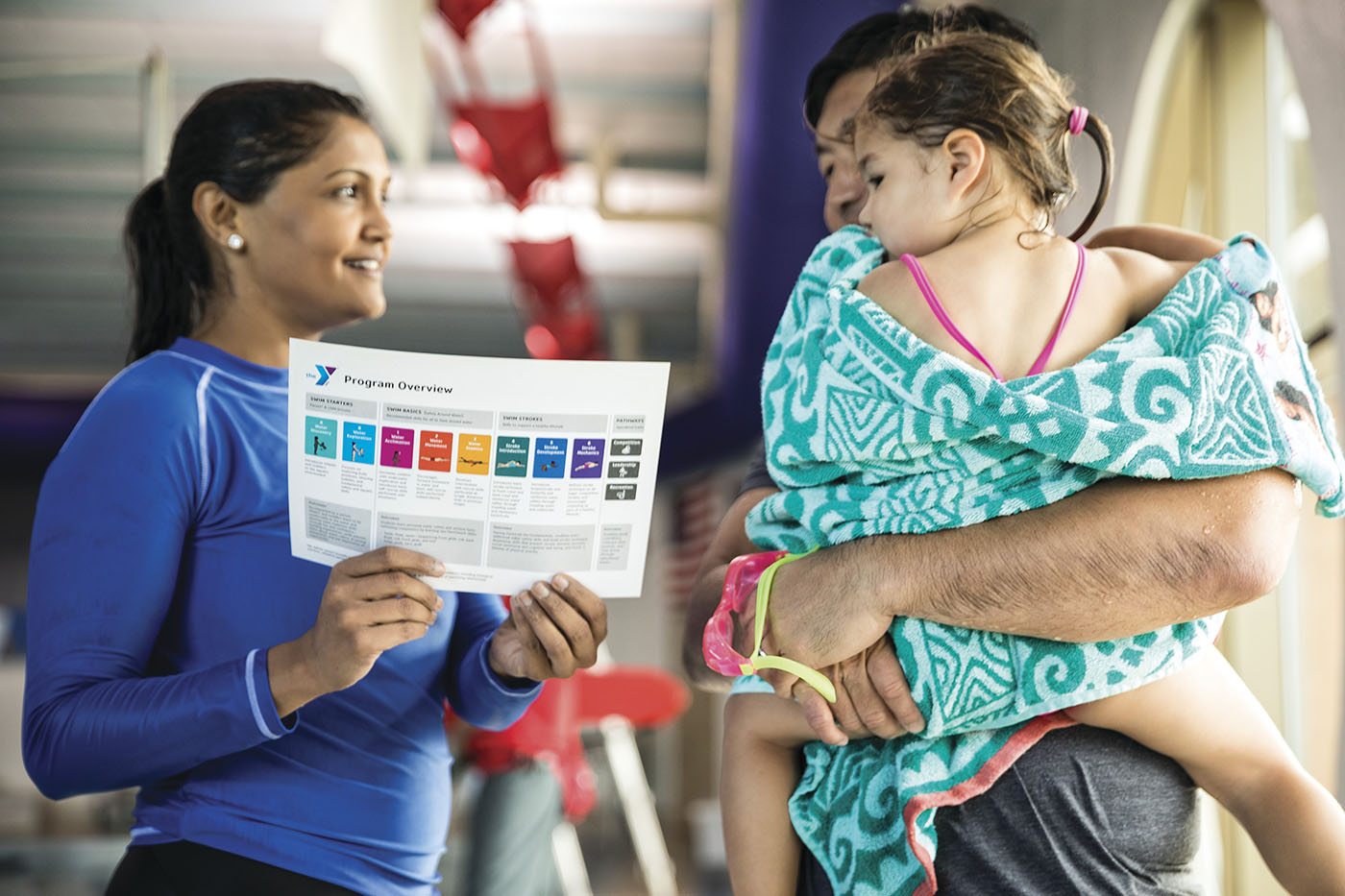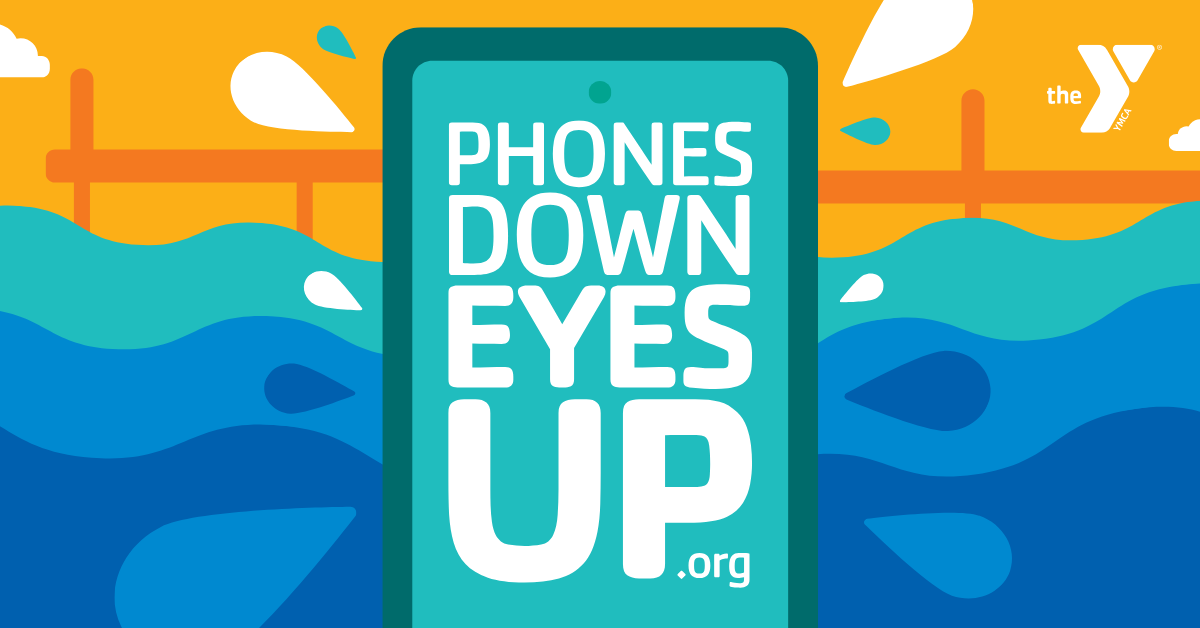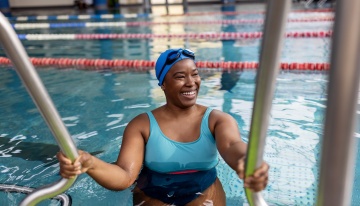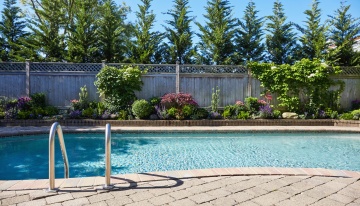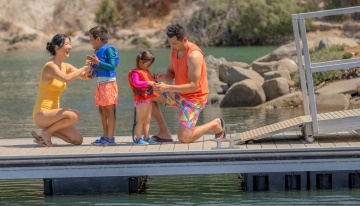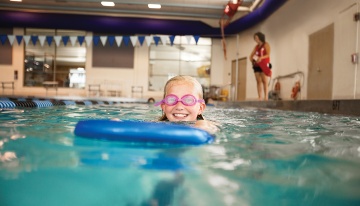Phones Down, Eyes Up™
Responding to a text, answering an email, listening to a podcast, or making a grocery list—these tasks may seem quick and harmless, but those few seconds of distraction can add up. When at the pool, beach, or lakeside, remember: Your eyes can save lives. Learn more about the Y's new water safety campaign and take the Phones Down, Eyes Up Pledge to help keep kids safe around water--this summer and all year long.
Drowning can happen nearly anywhere with standing water
Safety Around Water Program
Safety Around Water consists of eight lessons designed to teach kids water safety skills that help reduce the risk of drowning and build their skills and confidence in and around water. A typical session includes:
- Exercises to help kids adjust to being in the water
- Instruction in two skill sets kids can use if they unexpectedly find themselves in the water: Jump, Push, Turn, Grab and Swim, Float Swim.
- Safety topics like what to do if you see someone in the water who needs help
- Fun activities that reinforce skills
Swim Lessons
The Y introduced the country to group swim lessons over 110 years ago in 1909. Now, as one of the largest community-based organizations in the country, we teach more than a million children, especially those most at-risk of drowning, invaluable water safety and swimming skills each year.
There are three general categories of Y Swim Lessons:
- Swim Starters helps children ages six months to three years develop swim readiness skills through fun experiences that build confidence. In addition, parents learn how to supervise children in the water, prevent accidents and plan for emergencies.
- Swim Basics enables students of all ages to gain basic water safety and swimming skills. Swimmers become comfortable and confident in the water through practicing safe water habits, engaging in underwater exploration and learning how to swim to safety if they fall into a body of water.
- Swim Strokes introduces and refines stroke technique in older swimmers (school-age, teens and adults). Having mastered the fundamentals, students learn additional water safety skills and build stroke technique, developing skills that can help prevent chronic disease, increase overall well-being and foster a lifetime of physical activity.
News & Stories
Did You Know?
Parents and guardians have a critical role to play in teaching their kids water safety skills – but they don’t have to do it alone! Each year, the Y teaches more than one million kids life-saving swimming and safety around water skills.
-
9 in 10 U.S. parents see swimming as a key life skill for children, on par with first aid skills or being able to prepare a simple meal.
-
24% of U.S. parents have low confidence with water activities or bodies of water.
-
1 in 2 U.S. parents believe water safety classes are expensive in comparison to the other groups surveyed.
-
3 in 10 U.S. parents state that water safety isn’t a priority due to affordability concerns.
